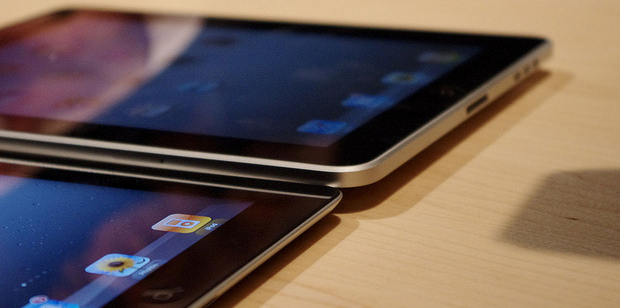Finding a use for all those first-generation iPads

A project has seen nearly ten thousand first-generation iPads offered to teachers -- who are members of the Teach for America corps -- after Apple asked customers upgrading to the iPad 2 to donate their original tablet.
Many who decided to upgrade to the new iPad either sold their first-generation tablet or traded it in to offset the cost, while others found that Apple's offering for teachers around the United States was a better option.

Teach for America is a corps of teachers recently out of college, who commit to working in deprived and less-economically viable places. Former Apple chief executive Steve Jobs' wife, Laurene Powell, sits on the board.
While the aim was to enable every student in the scheme, which runs in over thirty states, the Apple branded tablet is still a great help to teachers -- and students alike -- in the classroom.
Though so many high-profile and wealthy schools can afford to give an iPad to every student, the scheme falls short. But to enable as many classrooms as possible, even if it is just one device per room, to make the interactive experience of teaching and learning better, it is certainly a push in the right direction.
It may sound fickle, but technology is something that resonates with the younger Generation Y and Z nowadays; two generations only 'sibling-aged' apart which has been brought up on connectivity and interactive content. Simply having one in the classroom can be an incentive to children in particular to finish their work as quickly and as accurately as possible.
But the iPad alone, or any other tablet for that matter, cannot solve the problem of lack of reading. Technology can inspire and go on to motivate. But kids aren't stupid. They cannot be coaxed into reading with a flashy Kindle, or begin to enjoy solving equations because they are done on a tablet-run application.
Technology is often the key to modern education and engaging children. But the innate problems with education as a sector cannot be solved by a tablet.
Related:
- Schools ditch books for iPads; Won't solve today's reading 'crisis'
- iPad not so popular on campus; iPhone more practical?
- iPad: Breeding ground for the next-gen developer
- Five things the iPad 2 needs for Generation Y approval
- Open letter: University iPad ban; Catch up, simple as
- The truth about iPad: It's only good for two things
- iPad in schools? Content controls, DRM, and pricing mean no